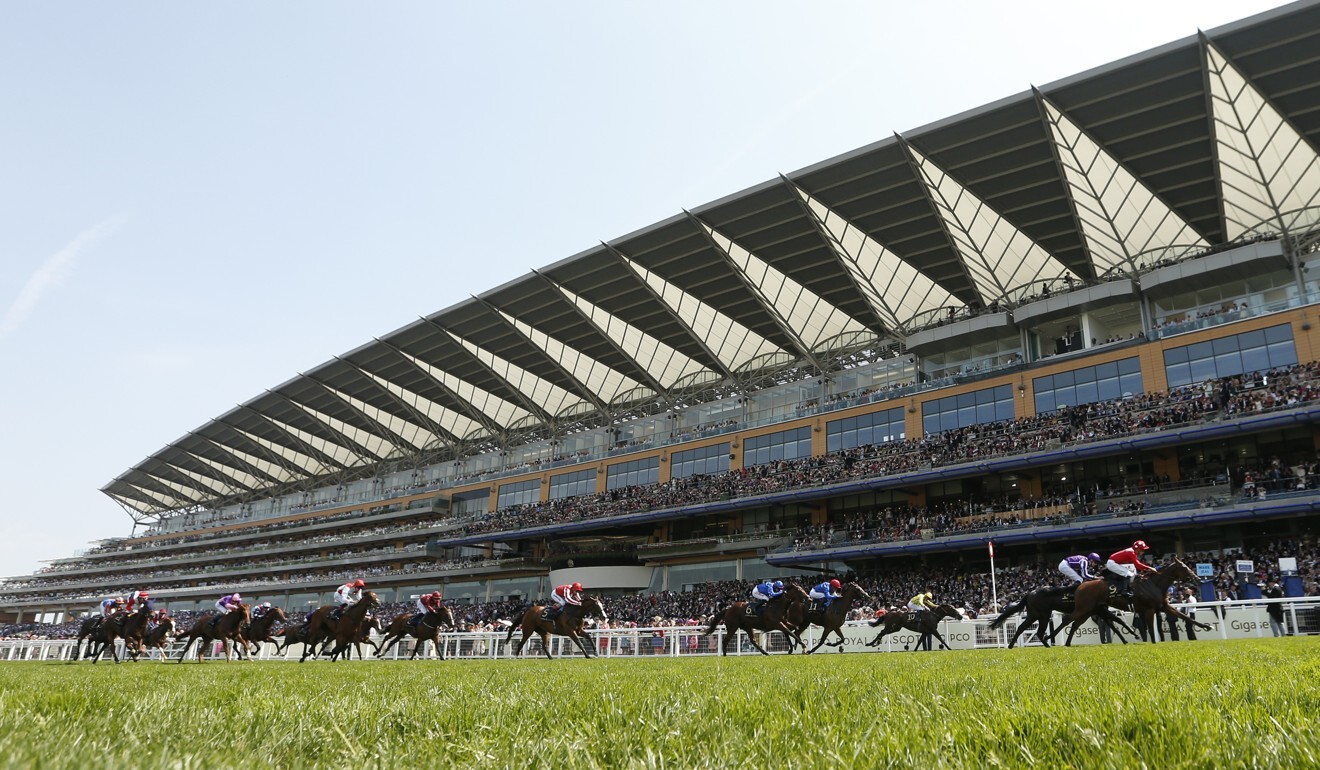Addressing your thoughts, questions and statements about Hong Kong racing. Have something to say? Send a tweet to @SCMPRacingPost.
Enhanced 36-race Royal Ascot order of running unveiled including three unique races to be staged this year only. St James’s Palace and Coronation Stakes moved to Saturday and two-year-old programme moved back. All remains subject to government approval – @willaitkenhead
It is all systems go for Royal Ascot and the new programme has people excited for the (expected) resumption of racing in Britain from June 1.
There are a host of changes that were announced on Friday and they should help maximise the opportunities for the “World Pool”, which is co-hosted by the Hong Kong Jockey Club.
The World Pool concept was launched at Royal Ascot last year with pari-mutuel punters from 13 countries betting on 24 of the 30 races (handicaps with 16-plus horses were excluded because of conflicting rules with place dividends) across the five-day meeting. There were four bet types – win, place, quinella and quinella place. It was a huge success.
“We moved from a market of £18 million [HK$170 million] to a market of £92 million [HK$868 million]. A 415 per cent year-on-year rise,” Ascot Racecourse chief operating officer Alastair Warwick told the Asian Racing Conference (ARC) in February.
Jockey Club chief dreams of joining Japan and South Korea to create giant global betting pools
Hong Kong provides the bulk of the international market – about 75 per cent – and the Covid-19 crisis presented a unique opportunity for Royal Ascot’s organisers to align more of its product to suit the requirements of the World Pool.
The field sizes have been capped at 24 – the maximum number the World Pool/Hong Kong (and other international totalisators) can handle – there are six additional races and an earlier start time, which – when allowing for the time difference – suits Hong Kong punters perfectly.
It’s a simple equation – extra races means more betting turnover and more turnover means more commission going back to Royal Ascot, which in turn goes toward prize money, etc. Bigger pools mean better price stability and value for customers. It is a win-win.
While organisers have to balance the restrictions put in place to combat the pandemic as well as catering to the needs of industry participants, at a time when most traditional revenue streams are gone – no fans will be allowed on course – it makes sense to maximise a growing market.

“That they have tailor-made the product now is good for the World Pool. We had discussions but it is a decision they made on their own. We are only partners, we cannot dictate this,” Jockey Club chief executive Winfried Engelbrecht-Bresges said. “I would expect a record from the World Pool – we have seen a positive development. If you look at the income per day, it’s massive for them.”
Previously, the cut from Hong Kong betting has been worth somewhere in the vicinity of £500,000-£600,000 per day for a Royal Ascot simulcast and it is only going to increase in this sports-starved environment.
“The betting in Hong Kong is a key driver, it gives you the liquidity. It gives them an additional incentive to go in this direction,” Engelbrecht-Bresges said. “It definitely helps from a cash-flow point of view to have this additional backing.”
The World Pool is seen by Royal Ascot as an integral part of its international strategy so it is no surprise it is on the front foot to ensure its continued growth.
Royal Ascot’s decision to press on has big ramifications for the Hong Kong Jockey Club
“The sport needs to understand that globalisation of betting is absolutely key to its future because it’s what’s going to fund it,” Warwick told the ARC.
“That liquidity is absolutely key, because it helps us make a competitive product.
“We actually beat [starting price bookmakers] as a pool product at Royal Ascot 16 times from 24 races. That is a huge change. The value that was actually created across the day for the customer started to make a real impact.
“Globalisation is going to occur and it has to for us to create a sport for the modern age. The key for it is collaboration … to provide a product that the customer wants.”
The World Pool concept has only been used once – at Royal Ascot last year – while it was meant to operate at the Dubai World Cup meeting in March, but that card was cancelled because of Covid-19.
There are plans to expand it in the future – for more meetings in Britain and potentially France and Australia – but they will have to wait for the time being.
“We definitely wanted to [explore opportunities] with Epsom for the Derby, but due to the coronavirus, it couldn’t happen,” Engelbrecht-Bresges said.
“When you do this, you have to do real testing. It’s not only the technology, it’s the processes and that comes back to the protocol.
“You want to ensure the integrity of the pool – if you cannot test it, you cannot start it. It’s too risky, so hopefully we will do it next year. The processes are in place for Royal Ascot.”
The Jockey Club is so committed to the idea when having to choose between running a local meeting at Happy Valley on Wednesday June, 17 or hosting the World Pool for day two of the meeting, it opted for the latter.
All 36 races from Royal Ascot will be simulcast in Hong Kong from June 16-20.
Help us understand what you are interested in so that we can improve SCMP and provide a better experience for you. We would like to invite you to take this five-minute survey on how you engage with SCMP and the news.



















